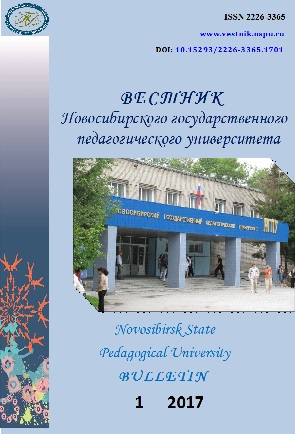Связь традиционной аюрведической медицины
с философскими школами Древней Индии
Communication traditional Ayurvedic medicine
with a philosophical school of Ancient India
Author(s): Vadim V. Ostanin, Anna Mikhaylovna Subotyalova, Mikhail Albertovich SubotyalovSubject(s): Ancient Philosphy, Indian Philosophy, Health and medicine and law
Published by: Новосибирский государственный педагогический университет
Summary/Abstract: Introduction. The article presents the problem of finding the historical and philosophical foundations of traditional Ayurvedic medicine in philosophical schools of Ancient India. The purpose of the article - the identification of connections between traditional Ayurvedic medicine and philosophical schools of Ancient India. Materials and Methods. Writing this article the authors used the sources of traditional Ayurvedic medicine, as well as works devoted to the concepts of the philosophical schools of Ancient India, applying comparative and analytical research methods. To achieve the goal we analyzed the basic concepts of philosophical schools of ancient India and compared the specific of the tenets` application by the schools in the sources of traditional Ayurvedic medicine. All the listed schools of ancient India (Sankhya, Yoga, Nyaya, Vaisheshika, Uttar-mimamsa (Vedanta) and Purva-mimamsa) are orthodox schools. Over time, these schools have formed two pairs: Nyaya-Vaisheshika and Sankhya-Yoga, which have close relationship with Ayurvedic medicine. Vedanta and Purva-mimamsa considered in isolation because of the differences existing between them. Both are based directly on the Vedas, while the first four systems, though they refer to the Vedas, interpret them differently. Results. The main result is that the "working hypothesis" of the world and human beings, which the traditional Ayurvedic medicine supports, based mainly on representations of orthodox philosophical schools. The authors note that the greatest contribution to Ayurvedic medicine have been made by the first four schools - Vaisheshika, Nyaya, Sankhya, Yoga. Thus, Ayurveda is not based on any one philosophical direction, and uses a variety of these systems. The article examines the features of six major philosophical schools of ancient India, which had an impact on the conceptual paradigm of traditional Ayurvedic medicine. It is emphasized that due to the detailed study of philosophy the future Ayurvedic doctors formed their world view that is reflected in the oath, which ayurvedic doctors gave at the end of their training. Conclusions. In conclusion, it is underlined that traditional Ayurvedic medicine has a strong philosophical basis, associated with all known philosophical schools of Ancient India.
Journal: Вестник Новосибирского государственного педагогического университета
- Issue Year: 7/2017
- Issue No: 1
- Page Range: 144-156
- Page Count: 13
- Language: Russian

